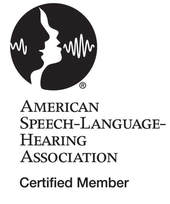FREE Consultation:

A free 30 minute phone consultation can be held to speak with you regarding your concerns about your child and to answer any questions you may have. This will also include gathering information to fill out a case history form as well as questionnaire regarding your child. After the consultation is completed, a decision will be made to determine if a more in-depth evaluation is necessary and if therapy is warranted.
Therapy Services Provided:
Gate to Communicate primarily specializes in treating Speech Sound Disorders from preschool to elementary school age children as well as children exhibiting delayed language skills (i.e late talkers). Listed below are the areas we treat:
- Articulation Disorders: This is a label given to children who demonstrate sound production errors that do not affect meaning. Articulation is the ability to produce sounds correctly at word, phrase, sentences and conversation level as well as sounds in isolation. Speech sound errors may consist of substitutions (e.g. children who say "wion" for "lion") or distortions of a sound (e.g. children who have a lisp). At a young age, it is common for children to have difficulty producing various speech sounds. There are several charts online which you are able to look up to see which errors are age appropriate or refer to the Milestones tab on here.
- Phonological Disorders: Phonology is the study of the patterns of sounds in a language. If a child is diagnosed as having a phonological disorder, it means the child is having difficulty understanding the sound system and using speech sound patterns correctly in a language which ultimately can affect meaning. Phonological processes are patterns of sound errors that typically developing children use to simplify speech in a systematic way such as consistent sound substitutions or omissions (e.g. a child is consistently dropping the "s" in s blend words (pin for spin OR nap for snap), yet they can correctly produce the "s" sound in other contexts such as "sock" or a child substituting /t/ for /k/ such as /tar/ instead of /car/).
- Childhood Apraxia of Speech (CAS): is a motor planning disorder that affects precision and consistency of movement transition between sounds + syllables which affects overall intelligibility. Children with CAS have difficultly planning and executing volitional motor movements in spite of intact muscle strength and coordination. With CAS, the brain has difficulty developing a motor plan for speech movements as well as a disconnect when sending the message from the brain to the muscles of the mouth. This may impact speech production and prosody.
- Expressive Language Delays: Expressive language is the output of language consisting of speaking and writing. These skills are a child's ability to organize and use spoken language to express their wants, needs, thoughts and feelings. It also includes their ability to use age appropriate vocabulary and follow the rules of grammar, which dictate how words are combined into phrases and sentences. If a child is struggling in this area, it is referred to as an Expressive Language Disorder. Common issues being: a child primarily using gestures and not communicating verbally with words, not combining words into phrase/sentences, not using beginning/endings of words (prefixes and suffixes), not using appropriate sentence structure.
- Receptive Language Delays: Receptive language refers to the understanding of language or the input of information consisting of listening and reading. These skills include a child's ability to understand spoken language by processing sounds, words and sentences, retrieving words and information, and understanding vocabulary, grammar and sentence structure. If a child is struggling in this area, it is referred to as a Receptive Language Disorder. Common issues being: not following directions, not answering questions when asked, appearing confused when told something.
Frequency of sessions depends on the individual needs of your child. Therapy will be provided in the natural-environment of your own home or in another mutually-agreed upon community location.
Evaluations
Comprehensive speech and language evaluations are essential prior to the initiation of treatment. These evaluations are offered in the comfort of your child's home and will typically last 1-2 hours. A speech and language assessment will allow the clinician to determine whether a speech/language disorder is present, identify your child's strengths and specific areas of need, and to outline a plan for services.
Rates
Please call or email for current rates regarding evaluations and treatment sessions. Gate to Communicate is not a participating provider with any insurance carriers and does not bill insurance directly, however you will be provided with an invoice or "superbill" that you can submit to your insurance company for reimbursement. Any necessary documentation regarding the speech and language services can be provided to you.
It is strongly advised that you contact your insurance company prior to treatment to determine if they provide coverage for an out-of-network provider for speech and language services. It's your responsibility to make sure services will be covered and if there are any pre-authorizations that are required to evaluate or provide therapy to your child.
It is strongly advised that you contact your insurance company prior to treatment to determine if they provide coverage for an out-of-network provider for speech and language services. It's your responsibility to make sure services will be covered and if there are any pre-authorizations that are required to evaluate or provide therapy to your child.
